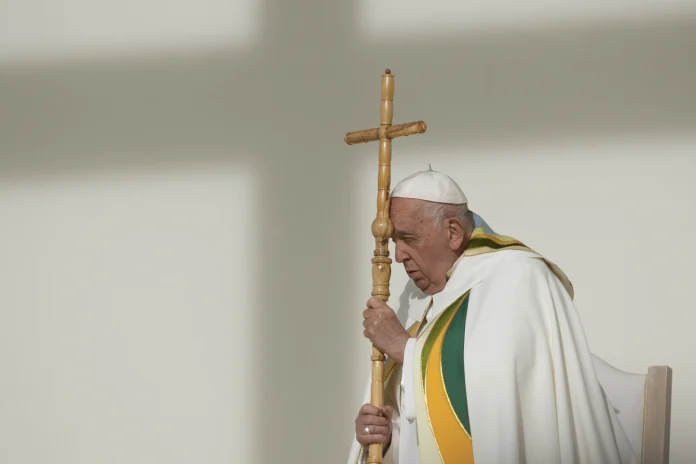On a visit to Belgium, Pope Francis issued a demand that clergy perpetrators of sexual abuse be brought to justice and that bishops stop covering up their crimes. Apart from, he faced criticism over the role of women in the church.
Francis travelled to Belgium to celebrate the 600th anniversary of the Catholic University of Leuven, the oldest Catholic university in the world and long the Vatican’s academic fiefdom.
The Pope responded to a meeting he held with 17 abuse victims on Friday night, where he heard first-hand the trauma and suffering they endured and the church’s indifferent response when they reported the crimes. He told 30,000 people at a sports stadium in the capital that “Evil must be brought out into the open,” which drew applause.
“In the church there is room for everyone, everyone, but everyone will be judged and there is no place for abuse. There is no place for the covering up of abuse,” Francis said in his homily. “I ask the bishops not to cover up abuse. Condemn the abusers and help them to recover from this disease of abuse.”
Belgium has an appalling legacy of abuse and cover-up of crimes committed by church officials. A symbolic example of the church’s indifference concerns the case of Bishop Roger Vangheluwe of Bruges, who sexually abused his nephew for 13 years. However, with the church’s permission, he quietly retired in 2010.
Francis stripped him of his ministry only this year, 14 years later, leading to the realisation that he had finally solved the problem before arriving in Belgium. Besides, the visit to Belgium compounded by the country’s history of clergy sexual abuse and the general secularisation trends that have ravaged its grand cathedrals and churches.
The King of Belgium demanded the Church work to resolve the scandal and the Prime Minister insisted that the needs of victims must be put first, a remarkable outburst from the leadership of the once staunchly Catholic country.
Rector Luc Seles told Francis that the abuse scandal had so undermined the church’s moral authority that it had best reform if it wanted to regain its credibility and relevance. Beyond, opening up more roles for women, including the priesthood, and being more welcoming to LGBTQ+ Catholics would be a good start, according to him.
Francis also encountered criticism regarding women. Students from the Francophone campus called for a “paradigm shift” in the church’s attitude toward women. They said the encyclical effectively ignores women, fails to cite any female theologians and promotes the “invisibility” of women in church and society. Women have long complained that they have a second-class status in the church, that they are not given priesthood and leadership positions despite the hard work they do.
The Pope said he liked the students’ statements but repeated his frequent refrain that women are complementary to men, despite the fact that the church is female. However, the Catholic University, which had invited the pope, expressed its misunderstanding of Francis’ statements about women.
During his 11-year pontificate, Francis has permitted women to serve as acolytes, giving them a voice in his periodic synods or assemblies and appointing several women to high positions in the Vatican. He said women should play a more active role in church decision-making. But he ruled out ordaining women priests and has so far refused to give in to demands to allow women to serve as deacons.
